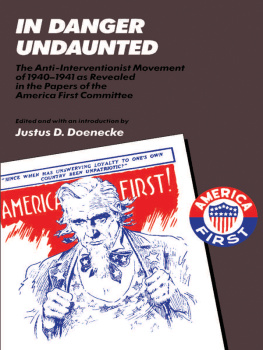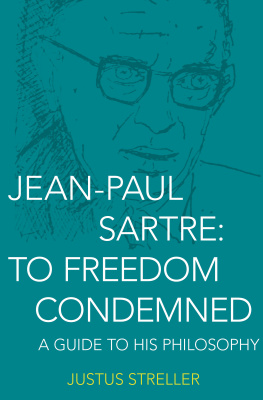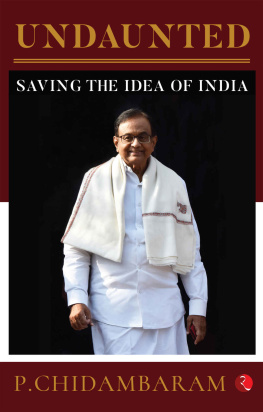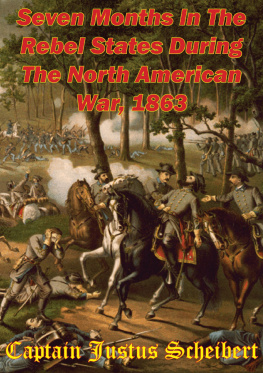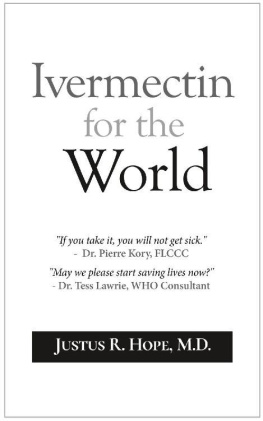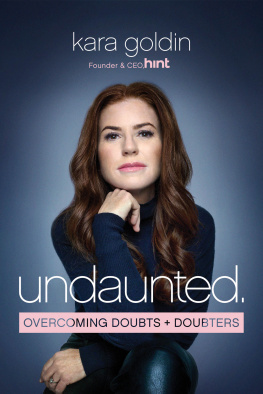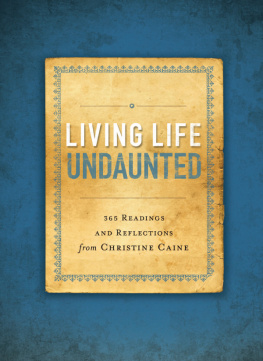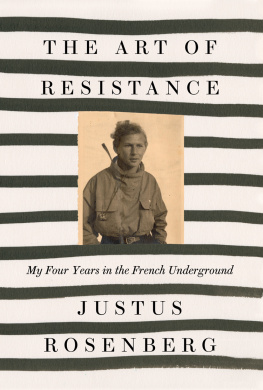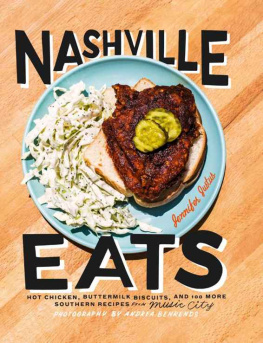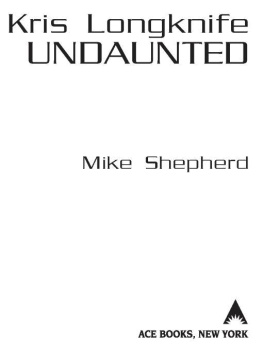Justus D. Doenecke - In Danger Undaunted
Here you can read online Justus D. Doenecke - In Danger Undaunted full text of the book (entire story) in english for free. Download pdf and epub, get meaning, cover and reviews about this ebook. publisher: Independent Publishers Group, genre: Politics. Description of the work, (preface) as well as reviews are available. Best literature library LitArk.com created for fans of good reading and offers a wide selection of genres:
Romance novel
Science fiction
Adventure
Detective
Science
History
Home and family
Prose
Art
Politics
Computer
Non-fiction
Religion
Business
Children
Humor
Choose a favorite category and find really read worthwhile books. Enjoy immersion in the world of imagination, feel the emotions of the characters or learn something new for yourself, make an fascinating discovery.
- Book:In Danger Undaunted
- Author:
- Publisher:Independent Publishers Group
- Genre:
- Rating:3 / 5
- Favourites:Add to favourites
- Your mark:
- 60
- 1
- 2
- 3
- 4
- 5
In Danger Undaunted: summary, description and annotation
We offer to read an annotation, description, summary or preface (depends on what the author of the book "In Danger Undaunted" wrote himself). If you haven't found the necessary information about the book — write in the comments, we will try to find it.
In Danger Undaunted — read online for free the complete book (whole text) full work
Below is the text of the book, divided by pages. System saving the place of the last page read, allows you to conveniently read the book "In Danger Undaunted" online for free, without having to search again every time where you left off. Put a bookmark, and you can go to the page where you finished reading at any time.
Font size:
Interval:
Bookmark:

The Hoover Institution on War, Revolution and Peace, founded at Stanford University in 1919 by President Herbert Hoover, is an interdisciplinary research center for advanced study on domestic and international affairs in the twentieth century. The views expressed in its publications are entirely those of the authors and do not necessarily reflect the views of the staff, officers, or Board of Overseers of the Hoover Institution.
Hoover Press Publication 384
Copyright 1990 by the Board of Trustees of the Leland Stanford Junior University
All rights reserved. No part of this publication may be reproduced, stored in a retrieval system, or transmitted in any form or by any means, electronic, mechanical, photocopying, recording, or otherwise, without written permission of the publisher.
First printing, 1990
Manufactured in the United States of America
Printed on acid-free paper
96 95 94 93 92 91 90 9 8 7 6 5 4 3 2 1
Library of Congress Cataloging-in-Publication Data
In danger undaunted : the anti-interventionist movement of 19401941 as revealed in the papers of the America First Committee / edited by Justus D. Doenecke.
p. cm. (Hoover archival documentaries)
(Hoover Press publication ; 384)
Includes bibliographical references.
ISBN 0-8179-8841-6 (alk. paper).
ISBN 0-8179-8842-4 (pbk. : alk. paper)
e-ISBN 978-0-8179-8843-2
1. America First Committee. 2. World War, 19391945United States. 3. United StatesNeutrality. I. Doenecke, Justus D. II. America First Committee. III. Series.
D753.147 1989
89-35269
940.5373dc20
CIP
This book is dedicated to
LEONARD P. LIGGIO
LOIS TEMPLETON AND KENNETH S. TEMPLETON, JR.
RAYMOND G. OCONNOR
and to the memory of
SALLY OCONNOR
The author is greatly indebted to the staff of the Hoover Institution on War, Revolution and Peace at Stanford, California, for sponsoring this project. In particular, I wish to thank Dr. Robert Hessen, general editor of the Hoover Archival Documentaries, for his countless hours of labor and continual words of encouragement. Other staff members who went out of their way to expedite this research include Mr. Charles Palm, associate director for library and archives; Dr. Adorjan I. de Galffy, former assistant archivist; Mr. Ronald Bulatoff, archival specialist; and Dr. Elena Danielson, associate archivist. Ms. Ann Wood, senior editor of the Hoover Institution Press, was exceptionally cooperative in expediting the publication of this book, and Ms. Janet Schilling did a most careful job of copyediting.
Mrs. Ruth Sarles Benedict, former director of America First's research bureau, graciously responded to my lengthy inquiries. Mrs. Rosemary Allen Little, librarian of public administration, politics, and law of Princeton University Library, made sure that I received the special Princeton file of America First papers donated by Sterling Morton. Dr. Robert S. Wood, former director of the Herbert Hoover Presidential Library, was especially generous in sharing his unmatched knowledge of the former president. I am also indebted to the staffs of Houghton Library of Harvard University; the Bancroft Library of the University of California; Sterling Memorial Library of Yale University; the Swarthmore College Peace Collection; the archives division of the New York Public Library; the Wisconsin State Historical Society; the University of Oregon; the Library of Congress; the Chicago Historical Society; and Providence College.
Other scholars also helped to expedite this project. Acting with a generosity unmatched in academe, Dr. James T. Patterson of Brown University and Dr. Eugene Lewis of New College of the University of South Florida provided a critical reading of the entire introduction. Special mention must go to Dr. J. Garry Clifford of the University of Connecticut for a critique based upon a matchless knowledge of Roosevelt's foreign policy. In an act of kindness rare among scholars, Garry also shared sources and leads at an early stage of this research. I benefited from the analysis of Dr. Raymond G. OConnor, professor emeritus of the University of Miami, who possesses a thorough knowledge of naval operations in the years 194041.
Over the years, the Institute of Humane Studies (IHS), now located at George Mason University in Fairfax, Virginia, and the Liberty Fund of Indianapolis, Indiana, have generously given me the equivalent of several years of support to investigate twentieth-century American policymakers and their critics. In particular I owe a debt to Mr. Leonard P. Liggio, former IHS president, and to Mr. Kenneth S. Templeton, Jr., past executive secretary of the Liberty Fund. The John Anson Kittredge Education Fund, whose chairman is Dr. Ernest R. May, also supported this research. Dr. Robert Benedetti, provost of New College of the University of South Florida, strongly encouraged all scholarly endeavor.
From September 1939, when Hitler invaded Poland and thereby triggered World War II, to December 1941, when Japan attacked Pearl Harbor, Americans vigorously debated their nation's role in the conflict. At stake was the possible entrance of the United States into the greatest war in world history, a move bound to affect the nation for decades to come.
Yet both interventionists and anti-interventionists had one thing in common: they were composed of extremely diverse coalitions. Neither group shared economic doctrines, social bases, or political affiliation. Within the interventionist camp were Wall Street financiers, New York City labor leaders, southern Democrats noted for their domestic conservatism, and presidents of Ivy League universities. Among the anti-interventionists were midwestern Republican congressmen, followers of the radio demagogue Father Charles E. Coughlin, the labor coterie surrounding John L. Lewis, and leaders of the Chicago business community. Former participants in the old progressive movement were on both sides. Members of the German-American Bund were strong isolationists, as were Trotskyists and, until June 22, 1941, Stalinists.
Opponents of intervention found their voice in the America First Committee (AFC), established in September 1940 to oppose the interventionism of President Franklin D. Roosevelt and his administration.
Since 1942, the AFC papers have been deposited in the archives of the Hoover Institution on War, Revolution and Peace. The 338 manuscript boxes contain national, state, and local records. In carton upon cartonsometimes unexpectedlyone finds material illuminating many aspects of U.S. policy, for the collection constitutes an invaluable record of one of the most vigorous action groups ever to appear in the United States. For those concerned with opinion making and economic elites, the AFC papers contain lists of major contributors, national committee members, prominent endorsers (including leaders in the black community), and those who offered confidential financial support. For those curious about student activism, the collection explores the world of the university, where two future presidents of the United States were among AFC ranks. For those who study mass opinion making, there are critiques of radio commentators, press opinion, and Hollywood films. For those interested in pressure groups, the collection is replete with AFC internal memorandums, an organizational prospectus, and candid appraisals of its own strengths and weaknesses. Historians of U.S. politics will appreciate the analysis of legislation offered by America First's Washington office. Lend-Lease, convoys, draft renewal, arming merchant ships, a possible war referendumfresh material is offered on all these topics, and on tensions with Japan as well.
Font size:
Interval:
Bookmark:
Similar books «In Danger Undaunted»
Look at similar books to In Danger Undaunted. We have selected literature similar in name and meaning in the hope of providing readers with more options to find new, interesting, not yet read works.
Discussion, reviews of the book In Danger Undaunted and just readers' own opinions. Leave your comments, write what you think about the work, its meaning or the main characters. Specify what exactly you liked and what you didn't like, and why you think so.

